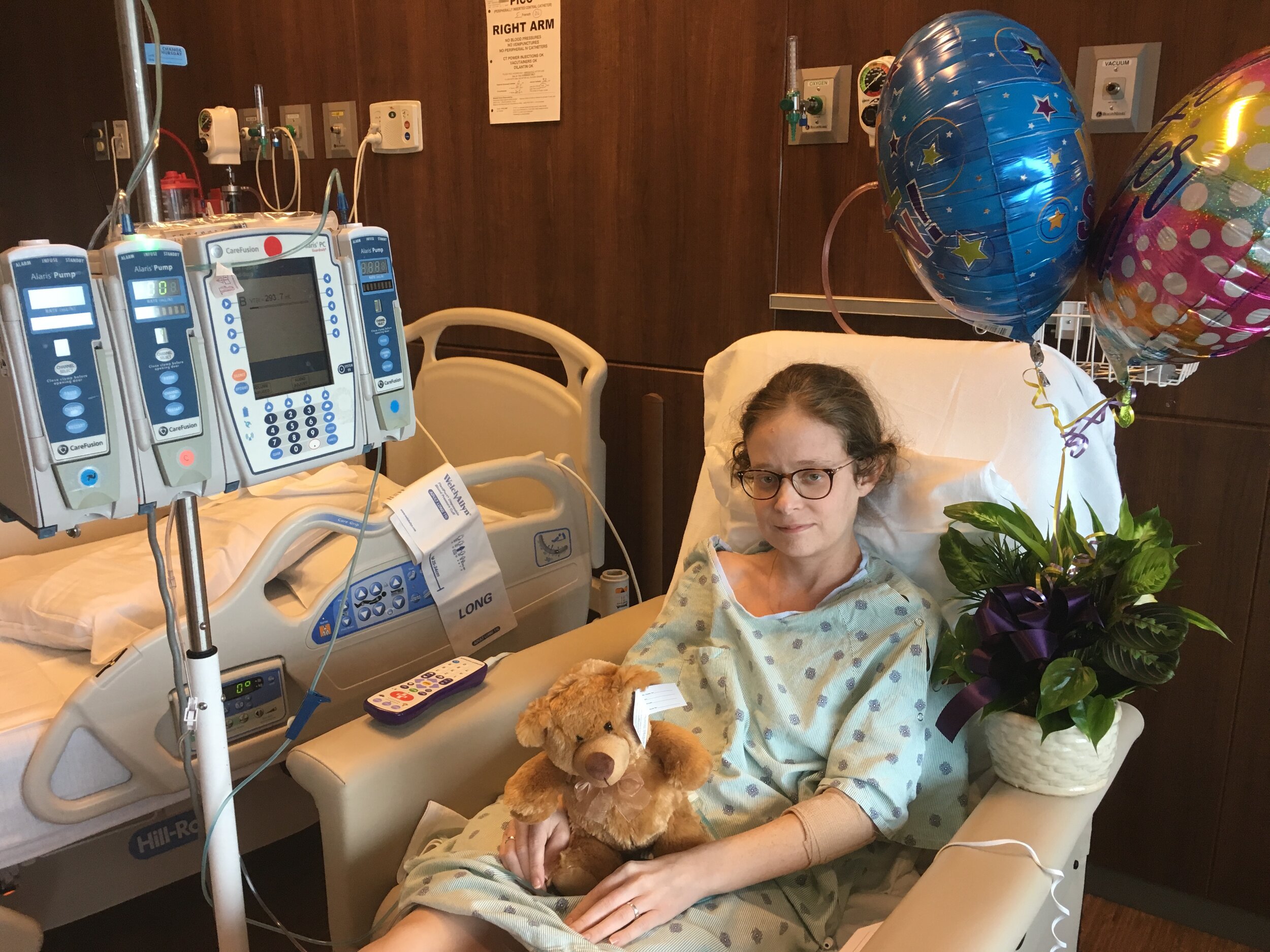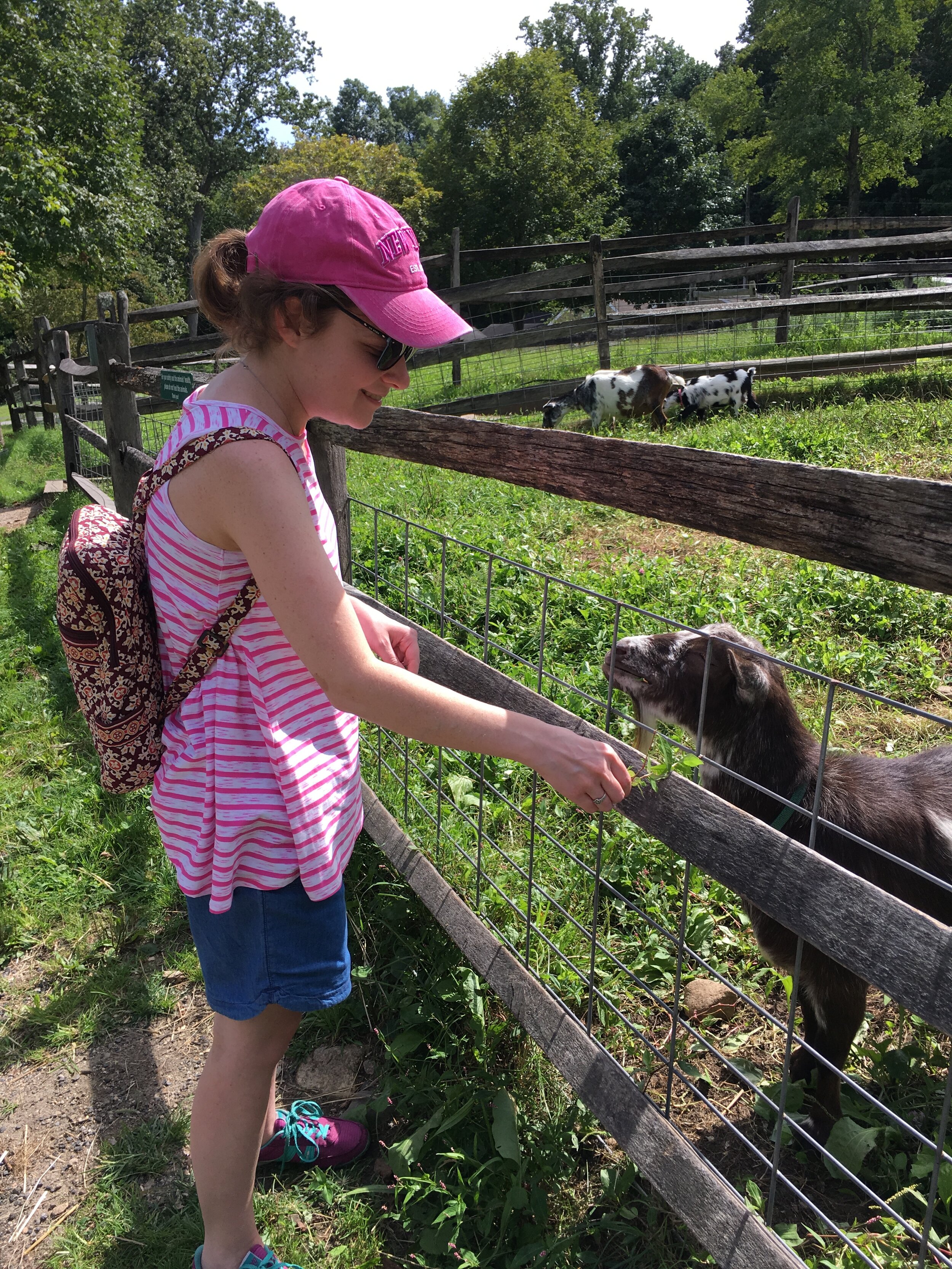Daily Life | IBD | Information

When I first became ill with severe pan ulcerative colitis, I was determined not to let the disease “break me.” I promised myself that I was going to go back to working full-time and earning my master’s degree in the time-frame I had originally set for myself. I was not going to go easy on myself or ‘let myself off the hook.” I was going to plow through as I always had during hard times.
As time passed and my disease proved more aggressive than thought (and resistant to medicine), I realized that I would need to change plans. I never imagined that the adventure I was about to take would be as fruitful as my formal education. I would like to share five key lessons I have learned in my battle with IBD.
1) I began taking time for myself.
Before my diagnosis, I was a goal-orientated workaholic, obsessed with tangible results. I felt compelled to put all of my attention into school and work. I knew this lifestyle was not healthy, but I could not handle the thought of “wasting my time” on something unproductive. My rigid need for productivity was so strong that I delayed my first hospitalization so that I could finish a paper for a graduate class.
The first two years contending with this disease showed me that I needed to change my ways. I quickly found myself in and out of hospitals, constantly going to doctors’ appointments and tests, and almost always exhausted. I could not simply work through the pain as I could with other ailments. I may not have had the energy or stamina to do anything productive in a traditional manner, but I was able to make use of my small bursts of energy (and countless hours on the toilet). I used this time to do simple things that would help me relax, such reading.
Books quickly became my escape. While reading, I was able to momentarily forget my pain and fear and live in other worlds. I read whatever I could find. The need to take time for myself is something that has carried over into my remission and I am a much happier person because of it.
2) I learned to accept myself.
I have never had high self-esteem. Before my diagnosis, I relied heavily on external approval to feel a sense of worthiness. I was always seeking the “A,” the next degree, or a compliment that would give me permission to feel good about myself.
Getting sick taught me that I could not depend upon the typical markers of success. This became most apparent last summer. Everything seemed to be well. I had just signed up to write my master’s thesis and accepted a full-time dream job at a local historical society. Unfortunately, my body had other plans for me. I ended up spending most of the summer in the hospital and then requiring emergency surgery to have my colon removed.
Needless to say, I did not finish my thesis that summer. Since I still needed to undergo two more surgeries, I turned down the job. I will not lie; I was very depressed. However, I have since come to realize that, as long as I am trying my best, I cannot beat myself up when things do not go as planned.

3) I learned to appreciate the little things.
When I was ‘healthy,’ I lived in a rush. I was often too busy to appreciate the fresh air, food, or the beauty of nature. I no longer take these seemingly simple, everyday things for granted. I take time each day to go for a walk or jog. If I am too tired to walk, I take the time to just step outside for fifteen to twenty minutes to do nothing but breathe and observe the world around me.
I also have a newfound appreciation for food. Having spent long periods on those dreaded clear liquid diets, I am beyond grateful when I can eat most foods without pain. I do not deny myself foods that will not harm me. If I am craving pizza, I will eat a slice of pizza. I refuse to feel guilty about occasional treats. If the guilt does start to creep in, I just think of all those weeks I was denied food. I am not going to deny or limit my options when I can eat.
4) I have developed a stronger relationship with friends and family.
I have always been grateful for my wonderful friends and family but did not realize just how important they were until I needed them the most. My illness strengthened an already strong bond between my mother and myself. She accompanied me to countless doctors’ appointments and tests, stayed with me in hospitals, and even drove me to my graduate classes when I was too ill to drive. She cried with me when my pain was unbearable and laughed at my questionable IBD humor.
I also had friends who came through, regularly checking in on my worst days. They were extremely understanding of my limitations and never made me feel guilty about missing events or turning down hospital visits. I feel truly blessed for the amazing people I have in my life right now; I hope that I can return this kindness someday.
5) It transformed my understanding of health.
It may not be a surprise at this point that I was an all-or-nothing person prior to developing IBD. I went on a few fitness kicks in college where I would try to run and live off of veggies. These phases were always short-lived. I quickly abandoned the gym and ate what was most convenient. These short stints of health consciousness also failed to include proper sleeping and stress management.
IBD taught me that living one’s healthiest life is not about artificial benchmarks or the standards set by social media posts. As an IBD patient without a colon, my health needs and goals are a little different than those of my non-IBD friends. For one thing, eating salads and apples (two of my former favorites) is probably not going to vibe with my body. I sometimes find myself forced to go for a meat-based meal instead of the ‘healthier’ vegetarian option because I know that it is what is best for my body. I have come to accept this while simultaneously working to expand my diet.
The other healthy habit I have adopted since getting diagnosed with Ulcerative Colitis is getting a proper amount of sleep. I used to think that sleep was something that had to be earned through a day of hard work and, you guessed it, productivity. This skewed perception of one of the most basic self-care practices left me seriously sleep-deprived throughout most of my teenage years and early twenties, but this is no longer the case. I no longer treat sleep as a reward for a job well done but as a necessity. I do not feel guilty for getting eight or nine hours of sleep or for taking a nap after work or a class.
My journey with IBD has been one with many twists and turns. I have had some scary, devastating, and frustrating moments, but I have also gleaned valuable life-lessons. I am no longer so consumed in my work that I miss life’s precious gifts. I take the time to relax, read, chat with friends and family, and enjoy nature. I no longer beat myself up over eating some pizza or having ice-cream for dessert, and I appreciate each day of life in remission. I do not think I ever would have reached this state of tranquility without the storm of IBD.

Keep sight on your goals! You may have to alter them on the fly occasionally, but it can be done! Try not to get discouraged. Some times the "long" education is the one that will become most valuable to you! Best of luck